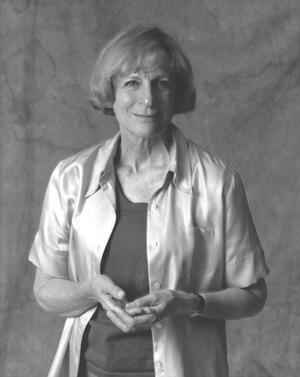Ruth Weisberg
I make art out of all aspects of my identity, finding in the process that art integrates my experiences, beliefs, and heritage. I am particularly nourished by the history of art, the history of the Jewish people, and by the unwritten history of women. I believe that art creates meaning and can be transformative for both the artist and their audience. I seek to create realms of the imagination in which the viewer can also project their struggles, stories, and desires.
The visual qualities of my work are often affected by the lens of memory – by the sense of the passage of time and the act of remembering.
Various media appeal to me for their distinctive strategies and association, but especially for their visual qualities. For example, lithography for its liquidity, monotypes for their luminosity, and mixed media painting for the tactility of its surface.
I find drawing to be the underpinning of everything I do. As a medium, I have treated drawing as both an intimate and monumental form. Since 1974, I have created installations that invite the viewer to enter an architecturally defined space. My interest in the spatial organization of narrative with its potential for interactivity culminated in the large scale works, “The Scroll” (1987-88), “Sisters and Brothers” (1994), and “Canto V: A Whirlwind of Lovers” (1999).
Ruth Weisberg is Dean of Fine Arts at the University of Southern California. As an artist, Weisberg works primarily in painting, drawing, and large-scale installations. A particularly active exhibitor, she has had over 70 solo and 160 group exhibitions. Her work is included in 60 major museum and university collections, in the U.S. and abroad. She was chosen as the artist for The Open Door Haggadah (2002), the new Haggadah of the Central Conference of American Rabbis (the Reform Movement), which is now in its second printing. In addition, Weisberg has written over 50 articles and reviews as well as several book chapters. A documentary entitled Ruth Weisberg: On the Journey by Laura Vazquez was released in April 2003 and won a Gold Medal at the Aurora Film and Video Festival. Weisberg has received many honors, including Doctor of Humane Letters, Hebrew Union College, 2001, and College Art Association Distinguished Teaching of Art Award, 1999.



